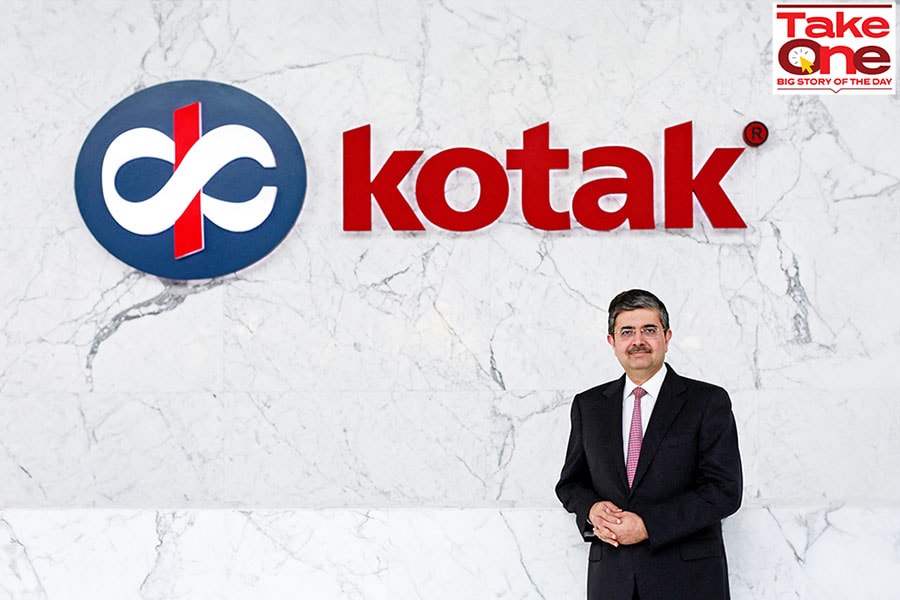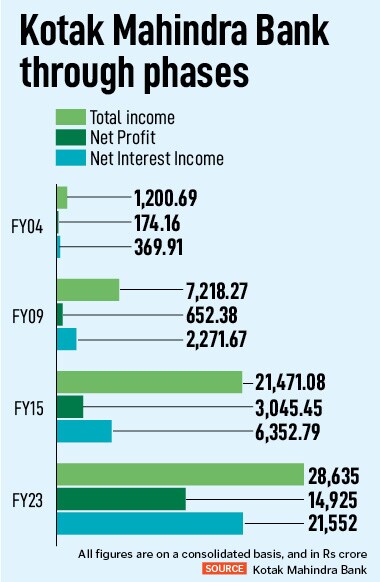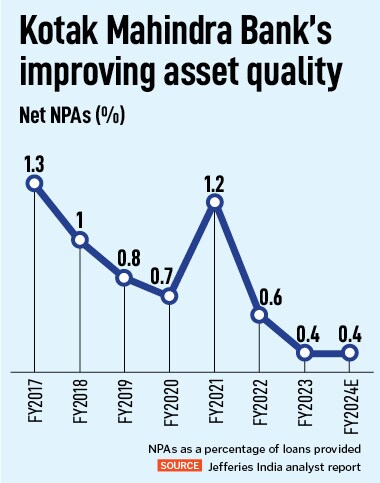
Uday Kotak's departure: Is there a signal to the RBI?
The regulator will consider the succession option presented by Kotak Mahindra Bank. A rejection, however, could force a rethink. Analysts are confident of the bank's journey post-Kotak, assuming a smooth takeover and not abandoning the promoter's success mantras
 Uday Kotak,founder, managing director and CEO, Kotak Mahindra Bank
Image: Reuters/Danish Siddiqui/File Photo
Uday Kotak,founder, managing director and CEO, Kotak Mahindra Bank
Image: Reuters/Danish Siddiqui/File Photo
Uday Kotak,founder, managing director and CEO of private sector Kotak Mahindra Bank, on September 2 clearly spelt out, in a handwritten letter posted on microblogging site X [formerly Twitter], the reasons why he steppeddown from his post, 121 days in advance.
The rationale to resign, the billionaire banker said, was “with a view to sequencing this process from a transition and stability perspective”, considering that the financial year and the AGM for FY23 were behind the bank. Uday Kotak will continue as a non-independent, non-executive director of the bank for five years and as a promoter with the largest single shareholding of 25.72 percent, as of June. He also cited personal matters, including his elder son’s marriage, which would keep him occupied in the coming months.
His term as CEO was scheduled to expire on December 31. Uday Kotak’s decision to resign—particularly in the wake of the planned exits of joint managing director and now interim leader Dipak Gupta and chairman Prakash Apte approaching on December 31—would have made sense in a regular situation, to give the new leader as much time to acclimatise to the new role.
But the pieces do not add up if you consider that the two most likely candidates believed to be frontrunners to take charge from Uday Kotak, if either is approved by the Reserve Bank of India (RBI)—KVS Manian or Shanti Ekambaram—have both led and worked with teams to create some of the most critical business units and functions in Kotak Mahindra Bank, over the last two decades. Manian, who has worked with the group since 1994, leads corporate, institutional andinvestment banking at Kotak Mahindra Bank since April 2014. Ekambaram, also a veteran within the group, leads consumer banking, prior to which she was heading corporate andinvestment banking for 11 years.




 The second option extends from the first. The RBI may decide to reject the candidatures offered by Kotak Mahindra Bank and want the bank to come back with fresh options of external candidates.
The second option extends from the first. The RBI may decide to reject the candidatures offered by Kotak Mahindra Bank and want the bank to come back with fresh options of external candidates.  Uday Kotak’s leadership was also well-recognised when he led a newly structured board of debt-ridden IL&FS, which, in 2018, heightened the risk of a systemic crisis of the country’s financial sector, after it went bankrupt for failing to honour debt it owed to banks and other lenders.
Uday Kotak’s leadership was also well-recognised when he led a newly structured board of debt-ridden IL&FS, which, in 2018, heightened the risk of a systemic crisis of the country’s financial sector, after it went bankrupt for failing to honour debt it owed to banks and other lenders. 



